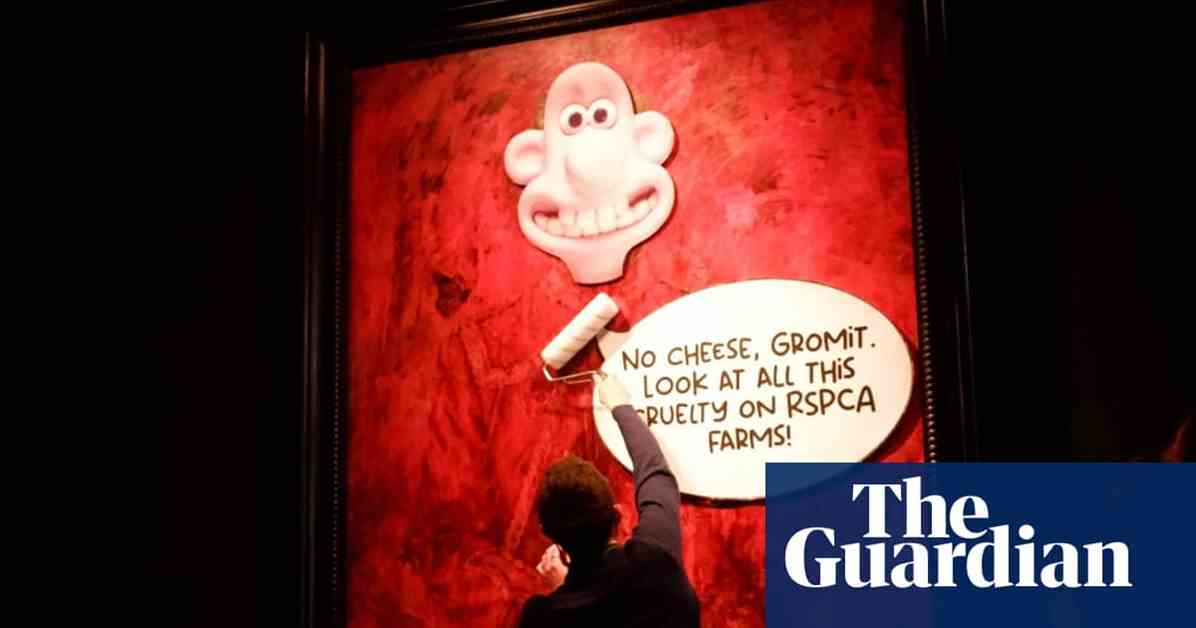Animal rights activists made a statement by pasting a picture of Wallace, the famous stop-motion cartoon character from Wallace and Gromit, over the portrait of King Charles in a gallery in central London. The activists, who are part of the group Animal Rising, described their actions as a “comedic redecoration” to draw attention to alleged animal cruelty at RSPCA-accredited farms.
The activists entered the Philip Mould gallery and used self-adhesive posters to cover the king’s face with Wallace’s image. Another poster in the shape of a speech bubble read, “No cheese, Gromit. Look at all this cruelty on RSPCA farms!” This act was captured in a video posted on Animal Rising’s Instagram account.
King Charles is the royal patron of the RSPCA, which oversees a certification scheme for farms called “RSPCA assured.” Animal Rising recently conducted an investigation into 45 of these farms and claimed to have found evidence of animal cruelty and suffering at each one, citing 280 legal breaches.
One of the activists involved in the protest, Daniel Juniper, explained, “With King Charles being a fan of Wallace and Gromit, we felt this was a creative way to bring attention to the suffering on RSPCA-assured farms. While we hope this brings a smile to his face, we also urge him to reconsider his association with farms endorsed by the RSPCA.”
The gallery confirmed that no damage was done to the portrait during the protest. In response, an RSPCA spokesperson stated, “We appreciate feedback on our work, but we do not support any illegal activities. We believe that our RSPCA assured scheme is currently the best way to support farmed animals while advocating for changes in the future. However, any concerns about animal welfare on RSPCA assured farms are taken seriously, and we are investigating the allegations.”
The Metropolitan police and the Philip Mould gallery have been contacted for further comments on the incident. Animal Rising’s protest has sparked a conversation about animal welfare and the role of certification schemes in ensuring humane treatment of animals on farms.




















